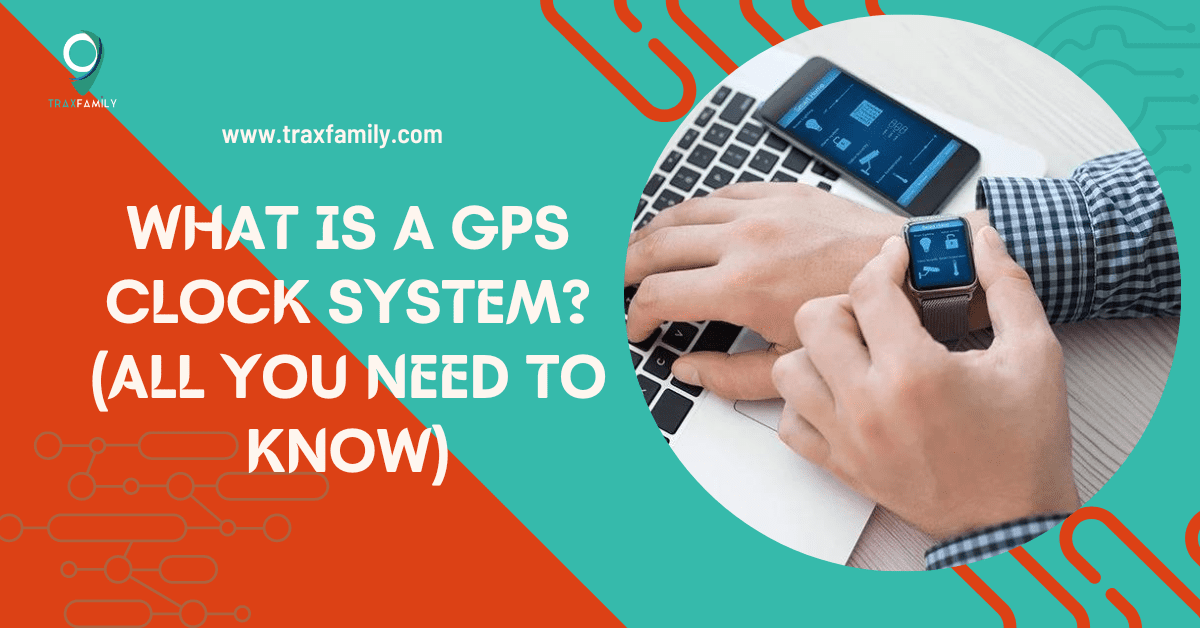What time is it now? – Your GPS could provide the most accurate answer to that question.
When we talk about GPS, the first thing that comes to mind is maps. The app shows us locations and advises which routes to take and which to avoid. But the Global Positioning System (GPS) can also provide timely information.
The GPS clocks can provide you with accurate time information. These clocks rely on GPS satellites that orbit the earth. These satellites, in turn, carry atomic clocks that provide time.
So if you are a business dealing with time-sensitive processes, GPS can provide you with the extreme accuracy of an atomic clock.
Let us look at GPS clocks in detail, how they work, how accurate they are, and the benefits they offer.
What is a GPS Clock System?
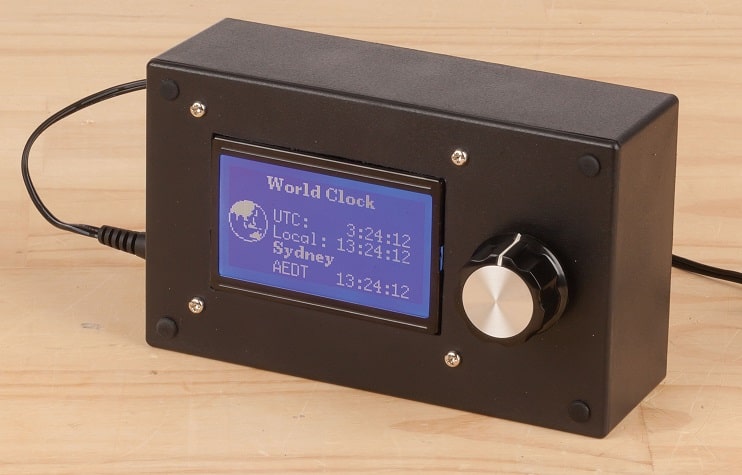
GPS is based on a global network of satellites developed by the US. Initially designed for use by the US Military, it was later allowed for civilian use.
The network consists of 31 satellites that emit signals from medium earth orbit. The receivers determine the location and time details by combining signals from at least four satellites.
These satellites carry atomic clocks that are known to be one of the most accurate time-keeping devices. The accuracy of these clocks can be as good as losing 1 second every few million years.
On the other hand, if we consider electronic or computer clocks, they do not provide such accuracy. The accuracy of these clocks could be losing 1 second every 10,000 seconds. So that would be a difference of about five minutes every month. In addition, the quality of materials used can degrade over time, which also means performance degradation.
Thus, a GPS clock is the more durable and accurate device on the market.
From a commercial perspective, you can buy physical GPS clocks at your office or home. There are also time clock apps available that are enabled by GPS. They provide additional functionality like timesheets and resource tracking.
For example, with these apps, you can use a GPS-based tracking system to track activities and manage project and employee hours. It provides businesses with a time source that is precise and legally traceable.
Other applications include synchronizing networks and financial, control, and communication systems.
What is an Atomic Clock?

So, we have been talking about how GPS derives its accuracy from atomic clocks. So let us understand what atomic clocks are and how they work.
Atoms, as you know, consist of a nucleus surrounded by electrons. These electrons contain energy levels. Microwaves can cause these electrons to jump to a higher orbit around the nucleus. This microwave frequency must be specific for the jump to happen.
Every element has a unique set of energy that will cause the electrons to change orbits. And this energy level remains universal for the element. So, for example, if we consider the official definition of the length of a second, it is the frequency measurement of electrons jumping in a cesium atom.
An atomic clock monitors the changes in the atom’s energy levels. This is what makes it more accurate than mechanical clocks. Other types of clocks rely on the quartz crystal oscillator. And as mentioned earlier, these clocks, without adjustment, can go off by five minutes in one month.
What Are the Types of Atomic Clocks?
There are three different types of atomic clocks:
- Cesium
- Rubidium
- Hydrogen
The cesium-based clocks work well as they have a higher frequency for a change than other elements. The atom also moves at a much slower speed. These conditions result in more accurate measurements. These clocks typically use a magnetic field to separate the cesium atoms.
After cesium, it is rubidium that has a high frequency for change. As rubidium clocks are not as accurate as the cesium ones, they are used as a second independent time source. These clocks use a glass cell that consists of rubidium gas. It provides time information based on the amount of light passing through the atom at a specific frequency.
The hydrogen clock uses hydrogen gas and passes it through a magnetic gate and into a storage bulb. These clocks work best for short-term applications, in some cases better than the commercial cesium standard. But in the long term, the clock’s stability decreases, resulting in poor accuracy.
How Does the GPS Clock System Work?
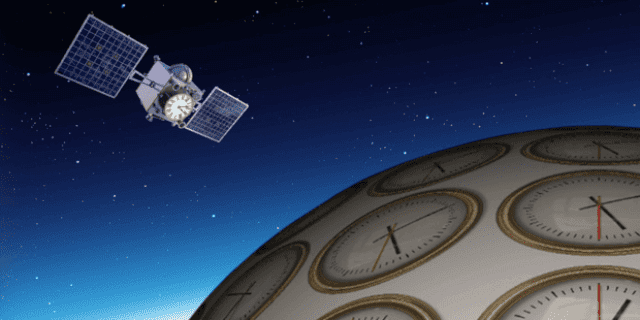
Every GPS satellite has a minimum of two cesium atomic clocks and a maximum of two rubidium atomic clocks onboard. These satellites emit signals which are monitored by the GPS receivers.
The receiver continuously determines when the signal was broadcasted. It computes the distance or range between itself and the satellite by studying the time difference between when the signal was sent and received. It will also consider environmental factors that could delay the signal speed.
Using the signals from three satellites, the receiver can compute longitude, latitude, and altitude data. It would typically need an atomic clock synchronized with GPS for the time dimension. But if the receiver uses the signal from a fourth satellite, the need for the atomic clock is eliminated.
These atomic clocks periodically synchronize with ground-based master clocks. For example, the NIST-F1 is a ground-based atomic clock that serves as the primary standard for the US. It is located in Boulder, Colorado, at the National Institute of Standards and Technology and is maintained by the US Naval Observatory.
Through the GPS synchronization process, you can access time that is accurate to 100 billionths of a second without needing your very own atomic clock.
How Accurate are GPS Clocks?
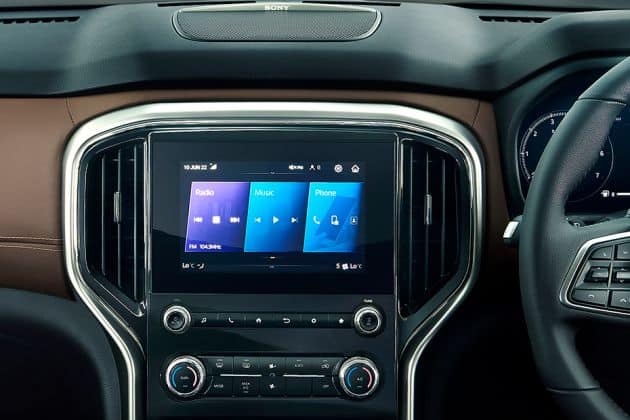
GPS clocks derive their accuracy from the atomic clocks they contain. When atomic clocks were first used, they had an accuracy of 10-11. But today’s best atomic clocks have an accuracy of 10-16.
If we consider NASA’s Deep Space Atomic clock is said to be 50 times more stable than the ones used in GPS satellites. It has an accuracy of being off by a nanosecond after four days. After ten years, the clock would be off by less than a microsecond.
Technological advancements are being made in this field to further increase the accuracy of these clocks to 10-18 to even 10-19.
You can use the GPS clock synchronization system to ensure all clocks adhere to the same time standard. For example, the system consists of a master clock and slave clocks. The master clock receives time data from a GPS receiver or NTP server.
The data is then transmitted to other clocks in the system with a wired or wireless medium. If the GPS signal fails for any technical reason, the clocks will continue to show time with the help of their in-build real-time clock. They will make adjustments if necessary when the GPS signal is restored.
How Does GPS Differ From UTC?
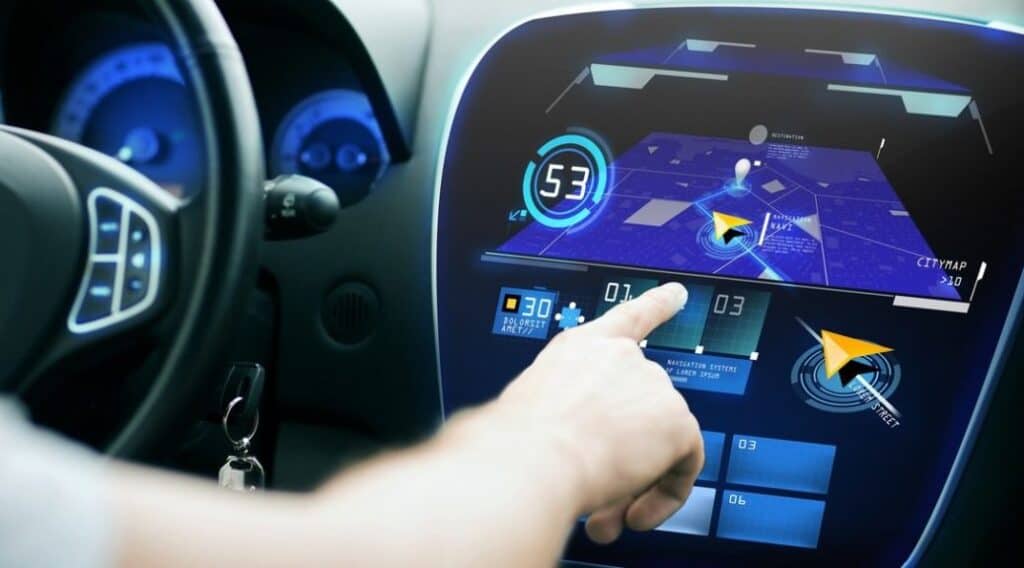
Coordinated Universal Time (UTC) is the time standard by which universal clocks are regulated. UTC implements the concept of leap seconds. This means it inserts a second in the time tracking scale to ensure it is in line with the solar time.
From about the 1970s to 2020, a leap second has been inserted at an average of about 21 months.
Atomic clocks, on the other hand, do not implement the concept of leap seconds. If we consider GPS time (GPST), it is about 18 seconds ahead of UTC as of May 2018. And as we have seen above, the atomic clocks on the satellites are periodically synchronized as per the master clock on the ground.
The satellite’s message does contain different information between GPST and UTC. So when the GPS receiver receives the signal, it can subtract the offset from GPS to get the local UTC.
What Benefits Does the GPS Clock System Offer?

One of the most significant advantages of using GPS clocks is that you can access the time accuracy offered by atomic clocks. Universally atomic clock time is available at a fraction of the cost.
Next is the accuracy offered by these clocks. Time is increasingly becoming crucial in business and government operations. For example, with a GPS synchronization system, communication systems, power grids, and other financial systems can be at the same level.
These clocks provide legally traceable time tags for businesses dealing heavily with financial transactions. This can further help optimize and maintain the financial network.
Global companies can implement processes and functions enabled by GPS time. So, for example, if you track employee hours and time spent on activities, you can accurately track hours regardless of the location. This can help streamline the process organization-wide.
What Are the Alternatives to GPS Clocks?
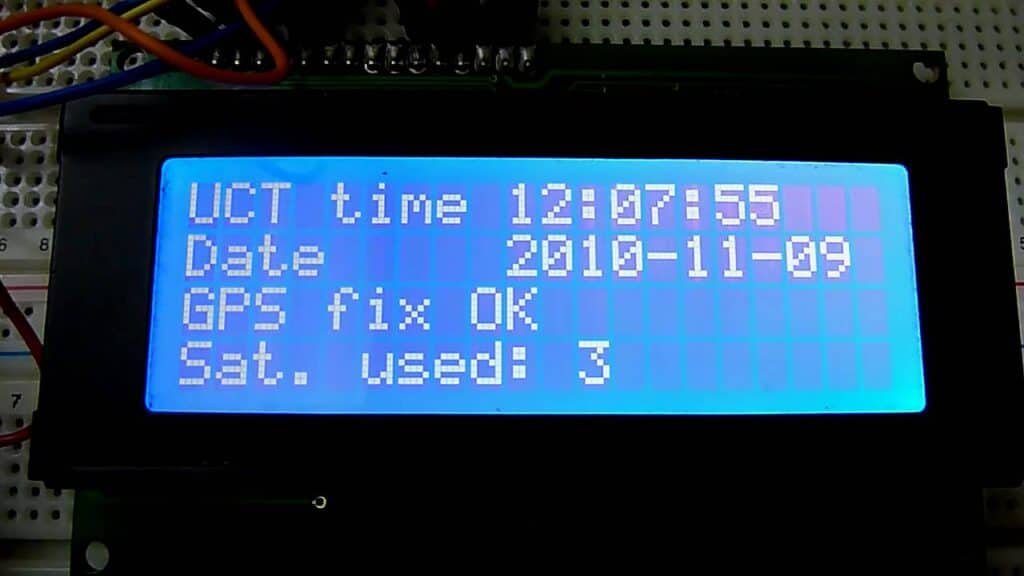
Apart from the US, Russia, Europe, and China have comparable satellite navigation systems in place.
Here are the alternatives to the GPS clock systems:
1. The GLObal Navigation Satellite System (GLONASS)
The Russian Aerospace Defence Forces operate and manage the GLONASS. The system provides global coverage, and its accuracy is comparable to the one provided by GPS. GLONASS does implement the concept of leap seconds to stay synchronized with the universal time standard.
2. The Galileo Global Navigation Satellite System
The European GNSS Agency and the European Space Agency operate and maintain the Galileo system. The Galileo system is the first global navigation system offered by a non-military entity. Its satellites consist of two hydrogen atomic clocks and two rubidium atomic clocks. According to the agency, the timing accuracy by Galileo stands at 30 nanoseconds.
3. BeiDou
The China National Space Administration operates the BeiDou 2 and 3 satellite navigation system. BeiDou was first introduced in China in 2011. It was in 2012 that it started offering services in the Asia-Pacific region. And in 2018, it started with its global offering. According to the agency, the system provides an accuracy of about 20 nanoseconds.
Summary
If accurate time is your requirement, then GPS clocks can be your answer. The GPS satellites you depend on for location data can also provide time data. The atomic clocks contained in the 31 GPS satellites are responsible for providing accurate time information.
These clocks have a time accuracy of 40 nanoseconds or less. They ensure businesses and users can have access to atomic clock time without actually needing an atomic clock.
GPS clocks can provide a traceable time source across networks and systems if you run time-sensitive business operations.
Also Read About
- Benefits of GPS In Farming And Agriculture
- How Trains Use GPS for Tracking and Locating
- How Aviation GPS Works?

Stefan Quartemont is an experienced author and expert on GPS technology, with a particular interest in its practical applications. He gained his knowledge of GPS tracking during his studies at Texas A&M University and has since become a regular contributor to TraxFamily.com, providing valuable insights into the latest developments in GPS tracking. Stefan’s expertise and passion for leadership make him a respected authority on GPS technology, and his work with TraxFamily.com is highly beneficial to anyone interested in staying up-to-date on this exciting technology.

